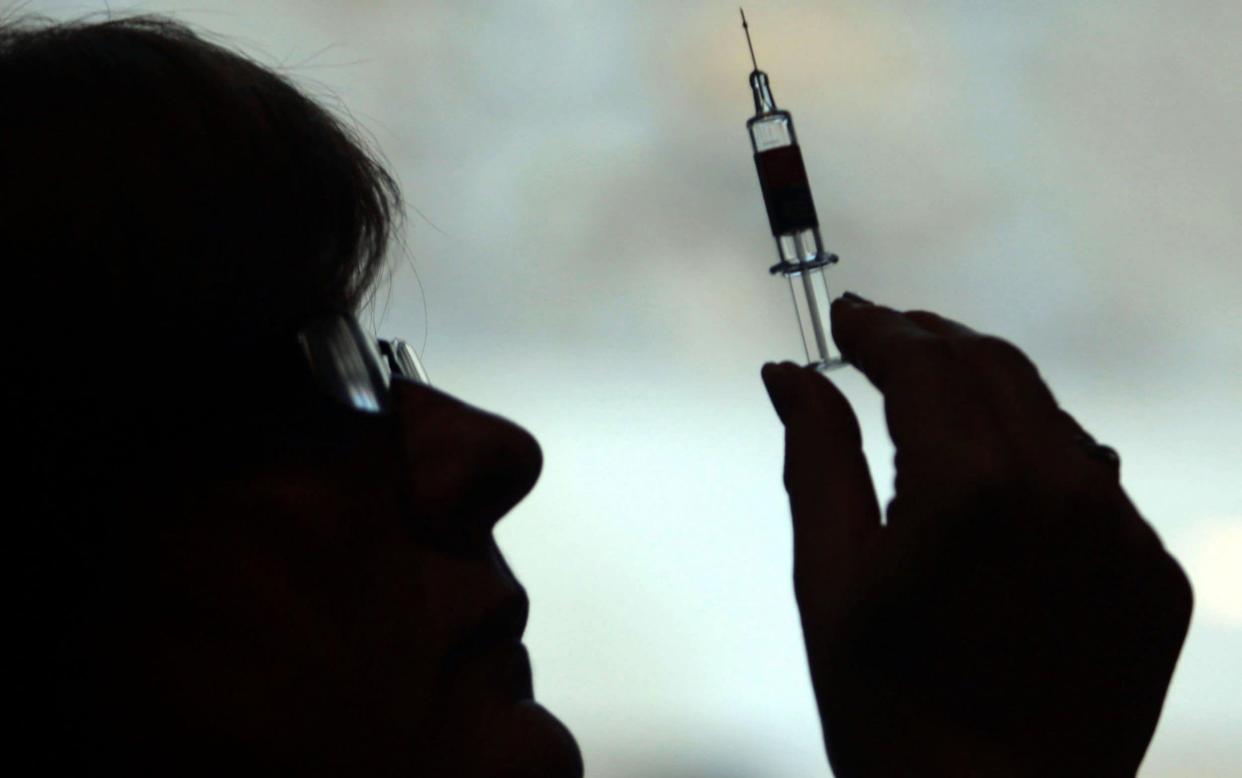Flu jab may reduce risk of dementia by a fifth, study finds

The flu jab could cut the risk of dementia by almost a fifth, according to a study which suggests that vaccinating younger people could be beneficial.
Research presented at the Alzheimer's Association international conference suggests that infections in those with dementia could increase the risk of death almost seven-fold.
A study from the University of Texas suggests getting the jab could cut the chance of developing the condition by 17 per cent.
The study of 9,000 people found the protective association between the flu vaccine and the risk of Alzheimer's was strongest for those who received their first vaccine at a younger age. Those who received their first documented flu shot at the age of 60 benefited more than those who received their first shot at 70.
It was presented alongside research by the University of Copenhagen, involving 1.5 million people, which suggested those with dementia have a 6.5-fold risk of dying after any infection. Any type of infection, from sepsis to minor ear infections, increased the risk of death among those with dementia, with risks remaining elevated for up to a decade.
The online conference came as Britain rolls out its most comprehensive flu vaccination programme. More than half the population of England will be offered free jabs to ensure that the NHS can cope if there is a second wave of coronavirus.

Health officials are now in talks about how to ensure good uptake, with ambitions to vaccinate 30 million people – up from 15 million last year.
The new plans aim to expand the programme to everyone over the age of 50, as well as to children up to the first year of secondary school, pensioners, pregnant women and everyone shielding and their households.
The most vulnerable will be targeted first, meaning healthy people aged between 50 and 64 may not be contacted until close to Christmas. Until now, healthy people between the age of 50 and 64 have not been offered the vaccine.
The new drive aims to protect the NHS in the event of a second virus wave amid concern that a double whammy of flu and Covid-19 could overwhelm services. The risks of complications from coronavirus increase with age.
Researcher Albert Amran, from the McGovern Medical School at the University of Texas Health Science Center in Houston, said: "Our study suggests that regular use of a very accessible and relatively cheap intervention – the flu shot – may significantly reduce risk of Alzheimer's dementia.
"More research is needed to explore the biological mechanism for this effect – why and how it works in the body – which is important as we explore effective preventive therapies for Alzheimer's."
Dr Rosa Sancho, the head of research at Alzheimer's Research UK, said the link between having a seasonal flu jab and reduced dementia risk was "intriguing".
She added: "This study indicates there is a beneficial impact of having one flu vaccination on dementia risk.
"It is difficult to speculate on the reasons behind this link, and understanding why a seasonal flu vaccine is linked to reduced dementia risk is an important avenue for further research.
"This research does not mean that Alzheimer's Disease is caused by the common flu, and there are potential non-biological explanations for this association, such as people who get the flu vaccine being more likely to take other steps to protect their health."
The charity said people with dementia and their loved ones had been "hit particularly hard by Covid-19."
Dr Sancho said: "The pandemic has also highlighted the serious nature of infectious diseases as well as the importance of vaccination.
"With dementia affecting nearly one million people in the UK alone, we must also consider the impact of infections, and preventing them, on dementia risk."

 Yahoo News
Yahoo News 
